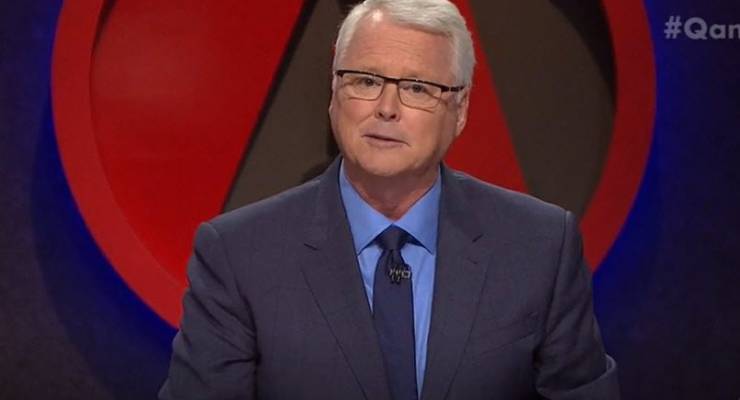
This piece is part of a Crikey Deep Dive series: “What is the ABC For?”. We’re trying to unravel and distill some of the crucial questions the ABC should be asking itself in this post-Guthrie/Milne era.
The ABC needs desperately to change or it will find itself destroyed.
Broadcast and public media were invented at basically the same time. This is not a coincidence, and it tell us something very important. The British Broadcasting Corporation popped into existence in 1927, at the same time as radio sets were arriving in people’s homes. The ABC followed shortly thereafter, in 1929.
Why? Broadcast is special.
It is not like magazine and books and newspapers. We had on our hand an acute case of market failure. It was textbook.
Broadcast was:
Non-excludable. Once the ABC sends out a broadcast signal, anyone with an antenna can tune in.
“Non-rival,” if your neighbour tunes in, or the whole suburb tunes in, it doesn’t reduce your ability to tune in.
Zero marginal cost. Because of the above, the cost to the ABC of another viewer or listener turning in is nothing.
Ever wonder why the private market can produce a million appealing magazines and (for most of my life) and yet only three mostly-dreadful commercial broadcast TV stations? This is why. The classic conditions for market failure.
Commercial TV broadcasters were only able to compensated for these appalling market dynamics with mass-market programming supported by advertisements. (Radio is victim to the same conditions, but lower operating costs mean more opportunity for community broadcasters, etc.)
Is the ABC even a broadcaster anymore?
We hold the ABC in high esteem. Rightly so. In a sea of rubbish, it was an island of sanity. But was this due to the especial courage and steadfastness of the institution? I say no. Not really. It was due to the market failure that prevented good competition. And that is changing.
The ABC is moving online. If it ceases to be in the broadcast game, its whole rationale shifts. Can it win?
HBO and Netflix show how the market can catch up when the game is not played over the airwaves anymore. The recent dawn of the “golden age of TV” should not be a surprise. HBO and Netflix are cable TV or streaming, and therefore not a pure public good. (Because you can exclude people from watching.) When TV was all broadcast, TV underprovided quality. Movies were where quality lived. Technology changed that. Online, the ABC can expect to face a similar challenge
So we stand at the precipice. The era of broadcast is ending and the ABC is already shifting online. Ex-ABC chair Milne’s so-called Project Jetstream plan would make that happen even faster.
Online is different
Online content is not a pure public good. It is excludable. Every password page reminds us: it is possible to charge for what you make. (And companies do. Netflix is a good example.) If it is going online, the ABC needs to hunt for a raison d’etre other than the fact broadcasts were a public good, and therefore its very existence corrected a market failure.
ABC CEO Michelle Guthrie, sensing a general threat in the air, misidentified its nature, and tried to defend the ABC by expanding its audience. She set up a lifestyle section. The top headline at time of writing is:
Five common pantry items you can use to clean your house.
Now, this could in theory be politically savvy. Defending the ABC gets easier the more votes there are in it. But it completely ignores the market dynamics. You think you can out-BuzzFeed BuzzFeed? Here’s 16 examples that will make you say puh-leeeze.
The ABC’s whole existence was once predicated on market failure. Now it needs to find market failures on a case-by case basis. That requires some humility.
Know where private works
Private media can be great. Under certain conditions, of course, private media is the remaining bastion of intelligence, which is why every Samizdat operator risked their lives. Today the great scoops coming out of the US are being published by private enterprise — as far as the New York Times and the Washington Post are concerned it is the golden age of journalism.
But private media is often imperfect too — risk-averse, biased by interests of advertisers or proprietors, too focused on major markets, too willing to give us things that offer a short-run sugar hit instead of nourishment. This leaves huge spaces for the ABC to fill.
So the end of public good argument for the ABC does not mean we should kill it. Instead, the ABC must, more than ever, fill the gaps. Leave lifestyle alone. Leave opinion alone. No more panel shows or talking heads. Definitely no Q&A. No concepts or ideas the market is already saturating us with.
Instead, find the market failures. Find the places where the market doesn’t do enough. Things like exposing corporate malfeasance and finding government corruption. Reporting on important things that have higher costs or more irregular payoffs, like local councils and regional issues, issues from non-mainstream communities, etc..
In summary I say burn down Double J, and kill Q&A. Pour every last cent into Four Corners.
(Disclosure: I was paid to write this by a private media company. They didn’t tell me what to say though.)








Crikey is committed to hosting lively discussions. Help us keep the conversation useful, interesting and welcoming. We aim to publish comments quickly in the interest of promoting robust conversation, but we’re a small team and we deploy filters to protect against legal risk. Occasionally your comment may be held up while we review, but we’re working as fast as we can to keep the conversation rolling.
The Crikey comment section is members-only content. Please subscribe to leave a comment.
The Crikey comment section is members-only content. Please login to leave a comment.